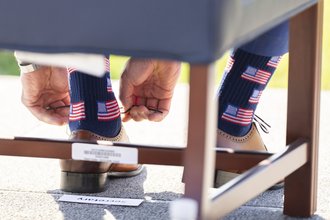The case for ignoring censorship orders


AP Photo/Jim Wells
Bars on publication, also known as prior restraints, are a serious violation of free speech.
The First Amendment forbids nearly all orders barring the press from publishing information, also known as prior restraints. But that doesn’t stop the government from trying.
For nearly 100 years, the Supreme Court has consistently rejected prior restraints on the press, including in its famous decision in the Pentagon Papers case. But lower courts and government officials continue to violate the Constitution by trying to gag the press from publishing, withholding vital information from the public. Prior restraints are antithetical to press freedom and must be stopped.

Journalists have the right to critically report on the government without signing away their integrity

Plus: How noncitizen journalists can prepare for ICE

Reporters can’t be limited to information that falls into their laps. They’re entitled to report

Wholesale Pentagon secrecy is a new low for an already secretive government

Attempted restraining order yet another instance of local officials punishing routine journalism

Plus: Disbar anti-press prosecutor

Lawyers need to stop asking for orders barring speech and judges need to stop granting them.

Dear Friend of Press Freedom,Here are this week’s top press freedom stories, plus updates on our work at Freedom of the Press Foundation (FPF).A series to spotlight public-records-based local journalismA major reason why politicians are able to attack the press without much resistance is that the public …

Plus: When the First Amendment fails, try the Fifth

When authorities attacked their local newspapers for coverage with which they disagreed, the outlets themselves became the story